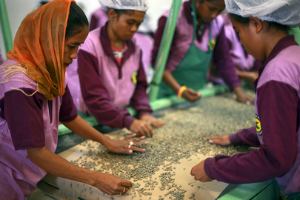 As economic crises, growing inequality and climate change prompt a global debate on the meaning and trajectory of development, increasing attention is focusing on ‘social and solidarity economy’ as a distinctive approach to sustainable and rights-based development.
As economic crises, growing inequality and climate change prompt a global debate on the meaning and trajectory of development, increasing attention is focusing on ‘social and solidarity economy’ as a distinctive approach to sustainable and rights-based development.
Social economy institutions and organizations play an important role in promoting livelihoods and job creation in the fight against poverty. Social economy enterprises offer an important source of employment in the face of global unemployment and underemployment problem.
Currently, it is estimated that the global cooperative movement directly provides productive self-employment for several hundred million workers-owners of production and services cooperatives, as well as the non-member employees and other cooperative enterprises. Agricultural cooperatives create employment in areas such as food production, marketing, credit, insurance and transportation. Cooperatives also provide more quality job opportunities for youth, women, indigenous peoples, persons with disabilities and other marginalized groups.
Cooperatives contribute to poverty reduction by typically placing more emphasis on job security for employee-members and employees’ family members, paying competitive wages, promoting additional income through profit-sharing, distribution of dividends and other benefits, and supporting community facilities such as health clinics and schools that do private sector businesses.
Cooperatives promote social integration and cohesion in the face of inequalities in social capabilities by empowering and giving voice to the poor as well as marginalized groups and by promoting the organization of federations and alliances.
Potential and Limits of Social and Solidarity Economy by UNRISD
 Welcome to the United Nations
Welcome to the United Nations